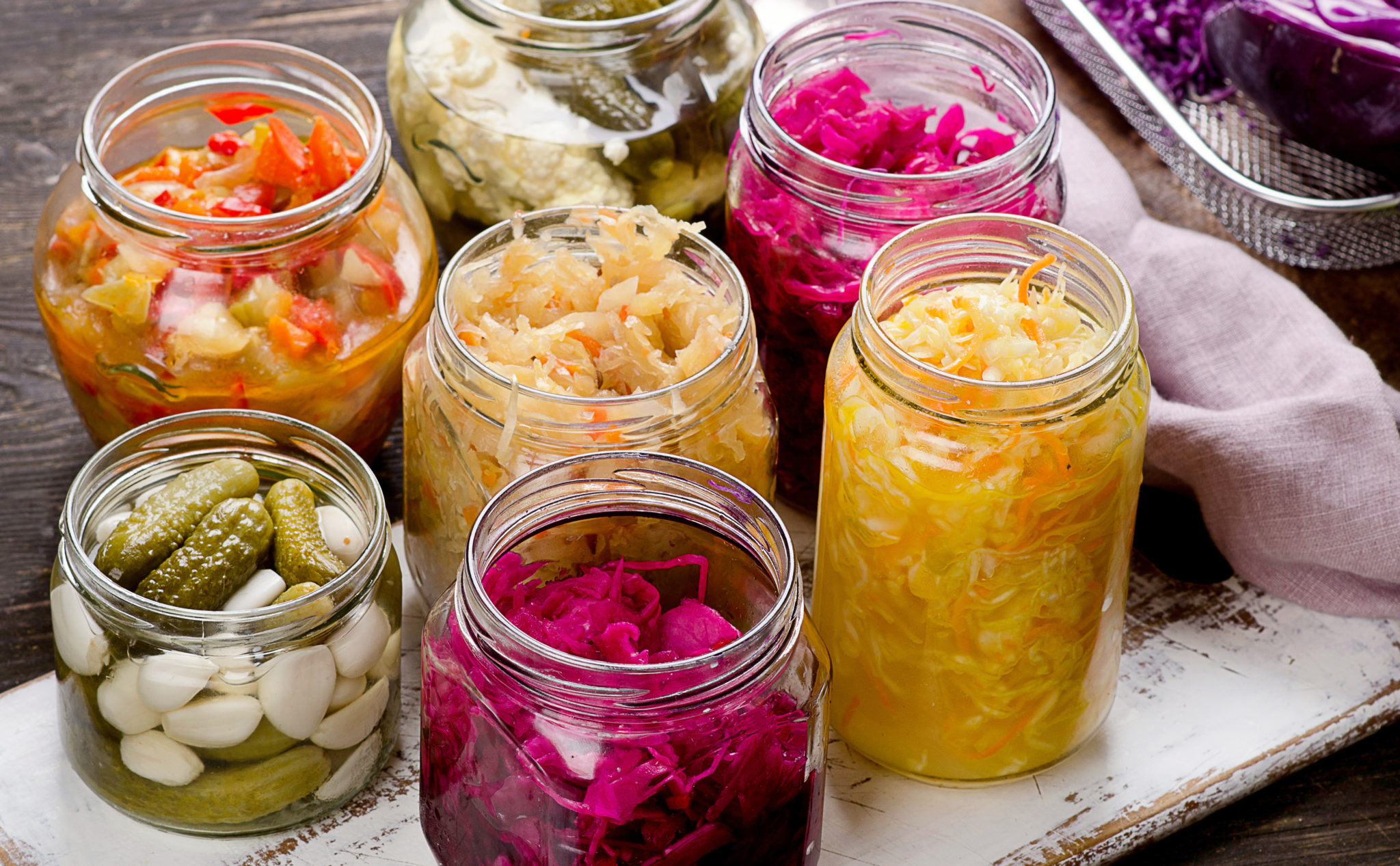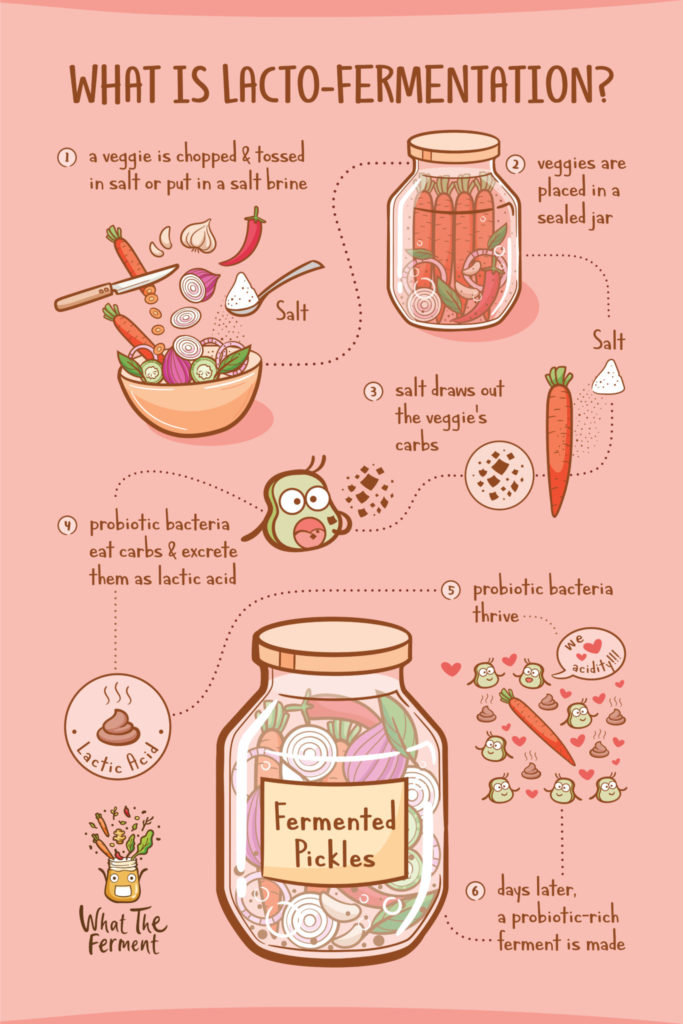
What is fermentation?
Fermentation is a means of preserving food through the hands of nature. When a fruit or vegetable is placed in the right conditions (e.g. a sealed jar), microorganisms can transform the food’s carbohydrates into new substances like carbon dioxide and lactic acid. The result is food and beverages that are tangy, acidic, and sometimes effervescent.
Fermenting is an ancient practice that exists in most regions of the world. There are a few types of fermentation out there, but the products I make primarily use lacto-fermentation.
What is lacto-fermentation?
Lacto-fermentation is the process in which bacteria and yeasts break down the carbohydrates in vegetables into lactic acid. Probiotic bacteria love lactic acid, meaning that once fermenting is complete, these beneficial bacteria survive and thrive in the newly made food.
The term lacto-fermentation refers to the type of probiotic bacteria doing the work, called lactobacilli. The term “lacto” stems from the fact that these bacteria produce lactic-acid (and has nothing to do with lactose).
How are lacto-ferments made? Easily! First, a raw food is tossed in salt or placed into a saltwater brine. Next, it’s placed in an oxygen-free environment, such as a sealed jar. Lactobacilli then “chew up” the food’s carbohydrates and “spit them out” as lactic acid. In this salty, acidic environment lactobacilli thrive, and voila, you have a probiotic-rich ferment.

What are probiotics and what’s all the hype?
Probiotics are the good bacteria that prevent us from getting sick. They are naturally present in plants and the human body, and are important in keeping a healthy balance of good and bad bacteria.
When bacterial imbalances happen, we can get sick. For example, antibiotics wipe out an infection but simultaneously kill protective bacteria need for digestion, sometimes resulting in diarrhea. Probiotics help replenish our bacterial flora and keep our digestion, amongst many things, on track.
The medical community is now recognizing the gut as a major player in health, since digestion impacts nutrient absorption, immunity, skin, mental health, and more. In fact, the gut is even referred to as the “second brain”, since the gastrointestinal tract produces 90% of our bodies serotonin (1, 2).
In a nutshell, probiotics are health superstars. Since ferments are oozing with these, that’s what the fuss is about.
Are fermented pickles the same as canned pickles?
Nope. While fermenting and canning are both forms of “pickling”, they use different methods and each create different types of “pickles”. The term “pickle”, by the way, refers to all types of pickles, including kimchi, sauerkraut, and more.
Lacto-ferments contain living probiotic bacteria. Due to this, ferments must be kept refrigerated once made. Canned pickles on the otherhand are pasteurized (heat treated), making them void of any living bacteria (good and bad) b shelf stable.
Sources
- Caltech (2015). Microbes Help Produce Serotonin in Gut. https://bit.ly/2AT8y8y
- Yano et al. (2015). Indigenous bacteria from the gut microbiota regulate host serotonin biosynthesis. https://www.ncbi.nlm.nih.gov/pmc/articles/PMC4393509/

